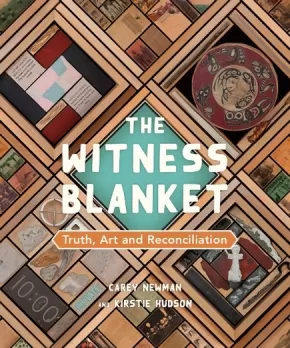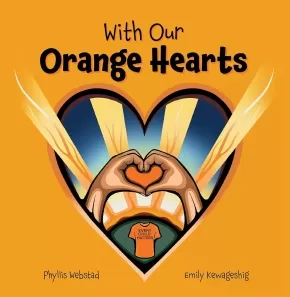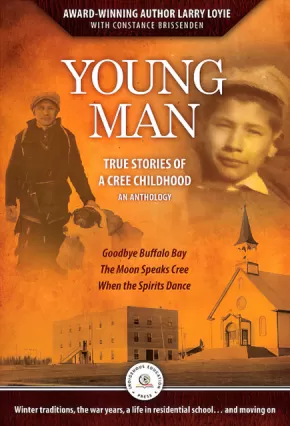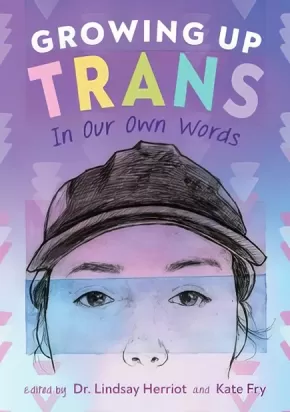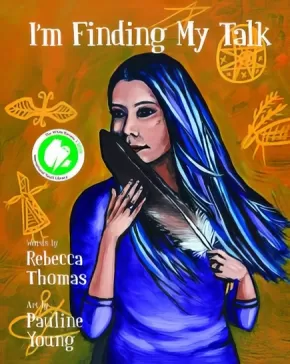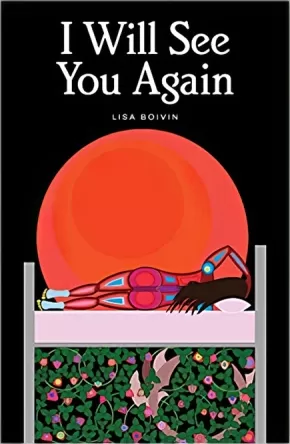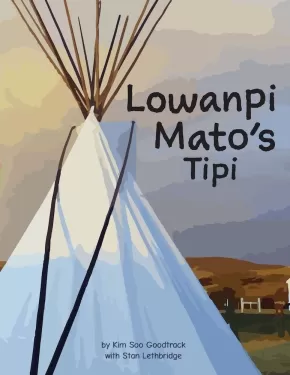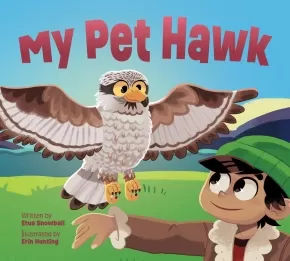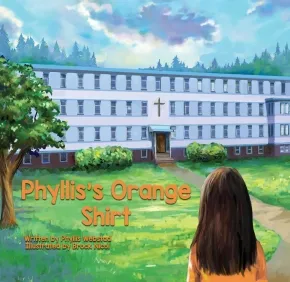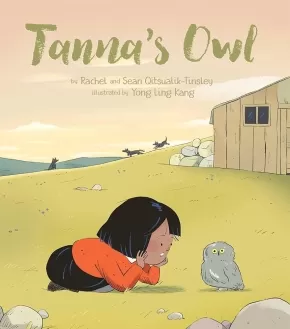
Personal Narratives
31
-
45
of
55 Results;
Sort By
Go To
of 4
The Witness Blanket: Truth, Art and Reconciliation
$24.95
Format:
Hardcover
Text Content Territories:
Indigenous Canadian;
ISBN / Barcode: 9781459836129
Synopsis:
Synopsis:
For more than 150 years, thousands of Indigenous children were taken from their families and sent to residential schools across Canada.
Artist Carey Newman created the Witness Blanket to make sure that history is never forgotten. The Blanket is a living work of art—a collection of hundreds of objects from those schools. It includes everything from photos, bricks, hockey skates, graduation certificates, dolls and piano keys to braids of hair. Behind every piece is a story. And behind every story is a residential school Survivor, including Carey's father. This book is a collection of truths about what happened at those schools, but it's also a beacon of hope and a step on the journey toward reconciliation.
Educator Information
Recommended for ages 9 to 12.
Additional Information
112 pages | 7.50" x 9.00" | Hardcover
With Our Orange Hearts (PB)
$10.99
Format:
Paperback
Text Content Territories:
Indigenous Canadian; Inuit; First Nations; Salish; Interior Salish; Secwepemc (Shuswap); Stswecem'c Xgat'tem; Métis;
ISBN / Barcode: 9781989122976
Synopsis:
Synopsis:
"Every child matters, including you and me. With our orange hearts, we walk in harmony." As a young child, your little world can be full of big emotions. In this book, I, Phyllis Webstad, founder of Orange Shirt Day, show that sharing my story with the world helped me to process my feelings. My true orange shirt story encourages young children to open their hearts and listen as others share their feelings, and to be more comfortable sharing their own feelings too. Listening is a first step towards reconciliation. It's never too early to start.
Educator Information
Recommended for ages 2 to 6.
This book is available in French in paperback: Avec nos coeurs oranges
This book is available in English in hardcover: With Our Orange Hearts (HC)
Additional Information
24 pages | 8.00" x 8.00" | Paperback
Young Man: True Stories of a Cree Childhood: An Anthology
$39.99
Format:
Paperback
Text Content Territories:
Indigenous Canadian; First Nations; Cree (Nehiyawak);
ISBN / Barcode: 9781990297304
Synopsis:
Synopsis:
Larry Loyie, award-winning Cree author, educator, and playwright writes honestly, tenderly, with laughter as well as sadness about his traditional childhood interrupted by six years in residential school. Three books in the Lawrence Series are included in Young Man, True Stories of a Cree Childhood. This book includes 53 photographs from the author’s life.
Educator Information
Recommended for grades 4 to 9.
This anthology includes three books:
- Goodbye Buffalo Bay
- The Moon Speaks Cree
- When the Spirits Dance
Additional Information
200 Pages | Paperback
Allies: Real Talk About Showing Up, Screwing Up, And Trying Again
$21.99
Editors:
Format:
Hardcover
ISBN / Barcode: 9780744039917
Synopsis:
Synopsis:
This book is for everyone. Because we can all be allies.
As an ally, you use your power—no matter how big or small—to support others. You learn, and try, and mess up, and try harder. In this collection of true stories, 17 critically acclaimed and bestselling YA authors get real about being an ally, needing an ally, and showing up for friends and strangers.
From raw stories of racism and invisible disability to powerful moments of passing the mic, these authors share their truths. They invite you to think about your own experiences and choices and how to be a better ally.
There are no easy answers, but this book helps you ask better questions. Self-reflection prompts, resources, journaling ideas, and further reading suggestions help you find out what you can do. Because we’re all in this together. And we all need allies.
A portion of the proceeds from this book goes to supporting charities.
Educator Information
Recommended for ages 12+
A new anthology helps young adult readers become better allies.
Additional Information
240 pages | 6.38" x 9.50" | Hardcover
Growing Up Trans: In Our Own Words
$24.95
Editors:
Format:
Paperback
ISBN / Barcode: 9781459831377
Synopsis:
Synopsis:
What does it mean to be young and transgender today? Growing Up Trans shares stories, essays, art and poetry created by trans youth aged 11 to 18. In their own words, the works illustrate the trans experience through childhood, family and daily life, school, their bodies and mental health. Together the collection is a story of the challenges, big and small, of being a young trans person. At the same time, it’s a toolkit for all young people, transgender or not, about what understanding, acceptance and support for the trans community looks like. In addition to the contributed works, there are questions and tips from experts in the field of transgender studies to challenge the reader on how to be a trans ally.
Growing Up Trans came out of a series of workshops held in Victoria, British Columbia, to bring together trans youth from across the country with mentors in the community.
Educator Information
Recommended for ages 10+
Additional Information
176 pages | 6.00" x 8.50" | Paperback
I Lost My Talk (PB)
$13.95
Artists:
Format:
Paperback
Text Content Territories:
Indigenous Canadian; First Nations; Mi'kmaq;
ISBN / Barcode: 9781774710050
Synopsis:
Synopsis:
I lost my talk
The talk you took away
When I was a little girl
At Shubenacadie school.
One of Rita Joe's most influential poems, "I Lost My Talk" tells the revered Mi'kmaw Elder's childhood story of losing her language while a resident of the residential school in Shubenacadie, Nova Scotia. An often quoted piece in this era of truth and reconciliation, Joe's powerful words explore and celebrate the survival of Mi'kmaw culture and language despite its attempted eradication.
A companion book to the simultaneously published I'm Finding My Talk by Rebecca Thomas, I Lost My Talk is a necessary reminder of a dark chapter in Canada's history, a powerful reading experience, and an effective teaching tool for young readers of all cultures and backgrounds. Includes a biography of Rita Joe and striking colour illustrations by Mi'kmaw artist Pauline Young.
Reviews
"This picture book version of I Lost My Talk is best read with Rebecca Thomas’s I’m Finding My Talk. These haunting, evocative books bring an original approach to the exploration of Canadian residential schools in picture books. For readers and teachers who appreciate fact-based information, there is also “A Short History of Residential Schools” at the end of I Lost My Talk. Educators, librarians, and families will find their classrooms and book collections invaluably enriched by these books. They are real tools of truth and reconciliation; as such, they belong on every bookshelf in Canada and beyond." - CM Reviews
Educator Information
Recommended for ages 4 to 9.
This work features a short history of residential schools and information about the author.
Recommended in the Canadian Indigenous Books for Schools 2020/2021 resource list for grades 1-7 for English Language Arts.
Additional Information
32 pages | 8.00" x 10.00"
I'm Finding My Talk (PB)
$13.95
Artists:
Format:
Paperback
Text Content Territories:
Indigenous Canadian; First Nations; Mi'kmaq;
ISBN / Barcode: 9781774710067
Synopsis:
Synopsis:
I'm finding my talk
And it may take some time,
But I'm learning to speak
In a language that's mine.
A response to Rita Joe's iconic poem "I Lost My Talk," and published simultaneously with the new children's book edition illustrated by Pauline Young, comes a companion picture book by award-winning spoken-word artist and Mi'kmaw activist Rebecca Thomas. A second-generation residential school survivor, Thomas writes this response poem openly and honestly, reflecting on the process of working through the destructive effects of colonialism.
From sewing regalia to dancing at powow to learning traditional language, I'm Finding My Talk is about rediscovering her community, and finding culture. Features stunning, vibrant illustrations by Mi'kmaw artist Pauline Young.
Reviews
"Published as a companion to the picture book I Lost My Talk, featuring the famous poem by Rita Joe, both volumes explore the legacy of Canada’s residential schools. They feature vibrant illustrations by Pauline Young that bring the words alive with emotional nuance. This remarkable pair of books possesses the rare ability of being suited to readers of all ages: three to six-year-olds, the traditional intended audience of picture books, will be captivated by the bright, lively illustrations; elementary and middle school children will find their Social Studies curriculum enriched by experiencing these important concepts rendered creatively; teens and adults will gain insight and empathy by enjoying these beautiful poems." - CM Reviews
"[A]n honest reflection on the process of working through the destructive effects of colonialism by participating in cultural connections. This book offers the opportunity to show the journey one takes when rediscovering their community and culture." - The Dalai Lama Center
Educator Information
Recommended for ages 4 to 9.
Recommended in the Canadian Indigenous Books for Schools 2020/2021 resource list for grades 1-3 in the areas of Social Studies and Language Arts.
Former Halifax Poet Laureate and second-generation residential school survivor Rebecca Thomas writes honestly and powerfully in this companion piece to Rita Joe's I Lost My Talk. Includes vibrant illustrations from Mi'kmaw artist Pauline Young.
Additional Information
32 pages | 8.00" x 10.00"
Mino-te-mah-ti-zee-win, A Good Way of Life Colouring Book
$14.95
Artists:
Format:
Paperback
Text Content Territories:
Indigenous Canadian;
Grade Levels: Kindergarten; 1;
ISBN / Barcode: 9781927849705
Synopsis:
Synopsis:
The National Indigenous Diabetes Association (NIDA) envisions diabetes-free communities. Their mission is to lead the promotion of healthy environments and to prevent and manage diabetes by working together with people, communities, and organizations. NIDA Elders partnered with Kayla Perry, registered dietitian with the Diabetes Integration Project, and the Manitoba First Nations Education Resource Centre (MFNERC) to present this colouring book, which features some traditional plants and animals (Our Relations) from our Elders’ territories and the lands in between.
The purpose of this colouring book is to provide an easy-to-read, visual resource with practical guidance that children and caregivers can use to learn about nutritional information from traditional foods and plants. This resource also shares some teachings and stories attached to these medicines. Traditional foods are plants or animals that are indigenous to the land, meaning they existed naturally on the land before settlers arrived. Food in the form of these plants, fruits, vegetables, or animals is a gift.
NIDA would like to acknowledge that the work for this project took place in the traditional territories of the Dakota, Anishinaabe, Cree, Ojibwe-Cree, and Dene Peoples, and the homeland of the Red River Métis Nation.
Educator Information
Recommended by the publisher for grades 1 and under.
Orange Shirt Day Book Package
$92.99
Artists:
Text Content Territories:
Indigenous Canadian; First Nations; Salish; Interior Salish; Secwepemc (Shuswap); Stswecem'c Xgat'tem;
ISBN / Barcode: 9781989122808
Synopsis:
Synopsis:
A collection of authentic Orange Shirt Day books from the founder of the Orange Shirt Day movement, Phyllis Webstad. Package includes four books and three accompanying lesson plans, The Orange Shirt Story, Phyllis's Orange Shirt, Orange Shirt Day and Beyond the Orange Shirt Story.
Educator Information
Includes picture books for children, as well as books for young adults. Review individual titles for more information about each include:
Additional Information
9.00" x 12.00"
I Will See You Again
$25.00
Artists:
Format:
Hardcover
Text Content Territories:
Indigenous Canadian; First Nations; Dene; Deninu K’ue ;
ISBN / Barcode: 9781553798552
Synopsis:
Synopsis:
When the author learns of the death of her brother overseas, she embarks on a journey to bring him home. Through memories and dreams of all they shared together and through her Dene traditions, she finds comfort and strength. The lyrical art and story leave readers with a universal message of hope and love.
Educator Information
Recommended for ages 12+ (Mature Picture Book)
In this emotional illustrated picture book, author and illustrator Lisa Boivin tells the story of the loss of her brother and the journey with her Dene traditions to find comfort and the strength to move on from her grief.
This book explores themes of death, memory, remembrance, comfort, and specifically Dene perspectives on death.
The author's deeply personal story is revealed through exquisite artwork and text that are grounded in her family's Dene culture.
Lisa Boivin's experiences as an artist and bioethicist inform her story, expressed in the Indigenous way of passing knowledge through images.
Additional Information
56 pages | 6.50" x 10.00" | Colour illustrations throughout
Lowanpi Mato’s Tipi
 $18.50
$18.50

Artists:
Format:
Hardcover
Text Content Territories:
Indigenous Canadian; First Nations; Sioux; Lakota;
ISBN / Barcode: 9781771744751
Synopsis:
Synopsis:
“Hokahe! Welcome!”
Welcome to Wood Mountain, home of the Lakota People, in southern Saskatchewan. It is here that we meet Stan Lethbridge, whose ancestral name is Lowanpi Mato (Singing Bear).
Join Lowanpi Mato as he prepares to set up his summer Tipi. He shares with us Lakota life values and traditions, and how they connect to building and taking care of a Tipi. He teaches us that to build a Tipi you need many items; some are from natural sources and others are purchased from a store. Lowanpi Mato takes us through a step-by-step building process so that we can all learn how a Tipi is built.
The Lakota language is woven throughout the story. The Lakota counting chart on pages 30 and 31 invites you to learn to count and have some fun looking back through the book to find items that match each number.
Welcome to Wood Mountain, home of the Lakota People, in southern Saskatchewan. It is here that we meet Stan Lethbridge, whose ancestral name is Lowanpi Mato (Singing Bear).
Join Lowanpi Mato as he prepares to set up his summer Tipi. He shares with us Lakota life values and traditions, and how they connect to building and taking care of a Tipi. He teaches us that to build a Tipi you need many items; some are from natural sources and others are purchased from a store. Lowanpi Mato takes us through a step-by-step building process so that we can all learn how a Tipi is built.
The Lakota language is woven throughout the story. The Lakota counting chart on pages 30 and 31 invites you to learn to count and have some fun looking back through the book to find items that match each number.
Educator Information
Lakota language is woven throughout this story, as are the seven values of Lakota life.
Lakota language is woven throughout this story, as are the seven values of Lakota life.
Includes a counting chart from 1 to 20 in Lakota, as well as a search-and-find counting game.
Additional Information
32 pages | 8.5" x 11" | Hardcover | ISBN: 9781771744751
32 pages | 8.5" x 11" | Hardcover | ISBN: 9781771744751
Making a Whole Person: Traditional Inuit Education (2 in stock, Out of Print)
$22.95
Artists:
Format:
Hardcover
Text Content Territories:
Indigenous Canadian; Inuit;
ISBN / Barcode: 9781774502051
Synopsis:
Synopsis:
“Before schools were introduced to the Inuit, we were taught by our relatives.”
In this picture book, Monica Ittusardjuat shares how she learned knowledge and skills in a time before being taken to residential school. She describes how children learned through playing games, imitating grown-ups, and observing adults around them.
Educator & Series Information
Recommended for ages 7 to 9.
Inhabit Education Books is proud to introduce Qinuisaarniq (“resiliency”), a program created to educate Nunavummiut about the history and impacts of residential schools, policies of assimilation, and other colonial acts that affected the Canadian Arctic. This book is a part of that program.
Each resource in the program has been carefully written and reviewed to include level-appropriate opportunities for students to learn about colonial acts and policies that affected Inuit. Topics covered include the residential school system, relocations to settlements and the High Arctic, sled dog slaughters, the use of E and W numbers, and others. These acts and policies created long-lasting impacts on Inuit individuals and communities, which are still being felt today.
The resources in this program include personal interviews, testimony, and writing; non-fiction informational resources; and information about traditional Inuit practices.
This resource is included in the Canadian Indigenous Books for Schools 2020/2021 list as being useful for grades 2 to 4 for English Language Arts and Social Studies.
Additional Information
26 pages | 8.00" x 9.00"
My Pet Hawk - Nunavummi Reading Series
$22.95
Format:
Hardcover
Text Content Territories:
Indigenous Canadian; Inuit;
ISBN / Barcode: 9781774506066
Synopsis:
Synopsis:
"I had always wanted a pet that flew...”
A boy is amazed when he sees a hawk swoop down and catch a lemming. From that moment on, he can't stop thinking about it. One day, the boy goes on an adventure and finds his very own baby hawk to keep as a pet. But he doesn’t know what hawk chicks eat or why his new pet won’t stop biting him. Can the boy learn to care for the hawk and teach it the skills it needs to survive on its own? Acclaimed singer and songwriter Etua Snowball recounts how he found his pet hawk and shares the lessons boy and bird taught each other during one unforgettable summer.
Educator & Series Information
Recommended for ages 7 to 9.
This book is part of the Nunavummi Reading Series, a Nunavut-developed series that supports literacy learning while teaching readers about the people, traditions, and environment of the Canadian Arctic. It is a Level 13 book in the series.
Nunavummi Reading Series books have also been officially levelled using the Fountas & Pinnell Text Level Gradient™ Levelling System. This book's F&P Level is N.
My Pet Hawk teaches children about the responsibilities of caring for a living thing.
Additional Information
44 pages | 0.35" x 10.00" | Hardcover
Phyllis's Orange Shirt
$11.95
Artists:
Format:
Hardcover
Text Content Territories:
Indigenous Canadian; First Nations; Salish; Interior Salish; Secwepemc (Shuswap); Stswecem'c Xgat'tem;
ISBN / Barcode: 9781989122242
Synopsis:
Synopsis:
When Phyllis was a little girl she was excited to go to residential school for the first time. Her Granny bought her a bright orange shirt that she loved and she wore it to school for her first day. When she arrived at school her bright orange shirt was taken away. This is both Phyllis Webstad's true story and the story behind Orange Shirt Day which is a day for us all to reflect upon the treatment of First Nations people and the message that 'Every Child Matters'.
Educator Information
Phyllis's Orange Shirt is an adaptation of The Orange Shirt Story which was the best selling children's book in Canada for several weeks in September 2018. This true story also inspired the movement of Orange Shirt Day which could become a federal statutory holiday. A page of information about this day is included at the end of the book. A short author biography is also included.
Adapted for ages 4-6.
Recommended in the Canadian Indigenous Books for Schools 2020/2021 resource list for grades K-1 in the areas of English Language Arts and Social Studies.
This book is available in French: Le chandail orange de Phyllis
Additional Information
30 pages | 9.00" x 8.00"
Tanna's Owl
$16.95
Artists:
Format:
Hardcover
Text Content Territories:
Indigenous Canadian; Inuit;
ISBN / Barcode: 9781772272505
Synopsis:
Synopsis:
When Tanna's father brings home an abandoned owl, she is not eager to take care of the needy, ugly little bird. Tanna must wake at 4:00 AM to catch food for the owl. She must feed it, clean up after it, all while avoiding its sharp, chomping beak and big, stomping talons.
After weeks of following her father's instructions on how to care for the owl, Tanna must leave home for school. Her owl has grown. It has lost its grey baby feathers and is beginning to sprout a beautiful adult snowy owl coat. As she says good-bye to the owl, she is relieved not to have to care for it anymore, but also is a bit sad.
This heartwarming story based on the author's own life experience teaches young readers the value of hard work, helping, and caring -- even when the thing you are caring for does not love you back.
Educator & Series Information
Recommended for ages 5 to 7.
Recommended in the Canadian Indigenous Books for Schools 2020/2021 resource list for Grades K-2 in the areas of Language Arts and Social Studies.
Themes/Subjects: Connection to Land, Owls, Seasons, Animals, Responsibility, Caretaking.
This book is part of the Tanna's Animals series.
This book is available in French: Le Hibou de Tanna
Additional Information
32 pages | 9.00" x 10.00"
Sort By
Go To
of 4

